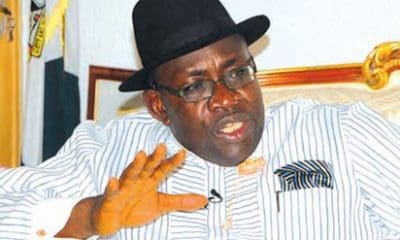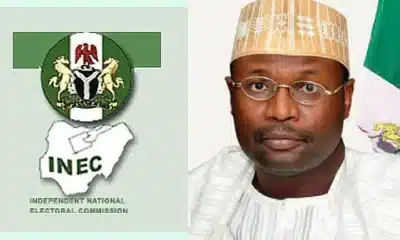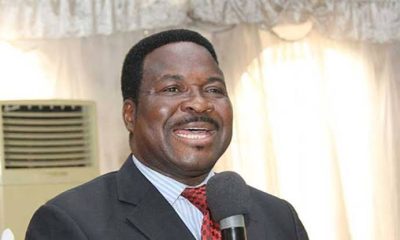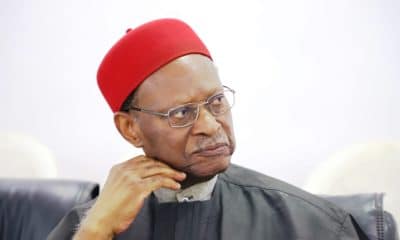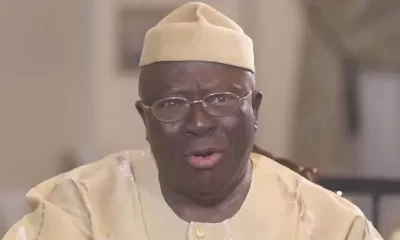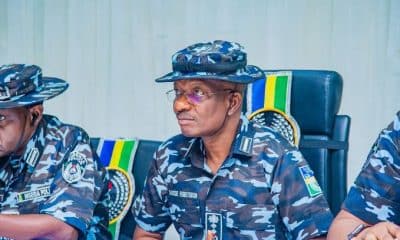2023 Election
Former NBA President, Agbakoba Predicts 2023 Elections Toughest Ever, Says There Is A Third Force Now
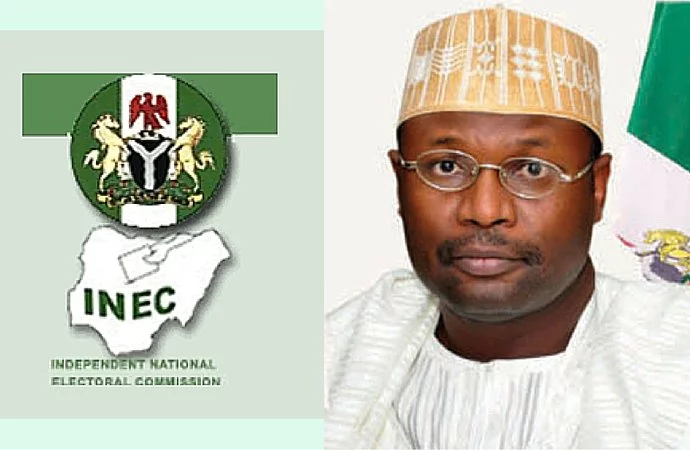
A former President of the Nigerian Bar Association and Senior Advocate of Nigeria (SAN), Olisa Agbakoba, has predicted that the forthcoming election would be the toughest ever in Nigeria’s history.
According to him, it’s going to be so because, for the first time, there is a strong third force contesting the race for the presidency.
Naija News gathered that Agbakoba, who made the pronouncement on Channels TV’s Politics Today explained that the 2023 presidential election is very certain as the race is predicted to be a tightly contested one.
The former NBA boss submitted that should the election end in a run-off, a winner would emerge through a simple majority.
He noted that “This is the toughest election that we are going into, very uncertain. We have for the first time a very serious third force.”
It was learnt that Agbakoba also spoke about how some provisions of the 1999 constitution like Section 134 can pose a threat to the incoming polls.
He said it would be better if the Chairman of the Independent National Electoral Commission (INEC), Professor Mahmood Yakubu, came out and clarify the commission’s position on section 134 of the 1999 constitution to the public.
Naija News learnt that in a letter to the INEC chairman, Agbakoba said he was “a little worried” about the correct interpretation of Section 134 of the 1999 Constitution that provides requirements to be met by a presidential candidate to be declared the winner.
The section provides: “(1) A candidate for an election to the Office of President shall be deemed to have been duly elected, where, there being only two candidates for the election – (a) he has the majority of votes cast at the election; and (b) he has not less than one-quarter of the votes cast at the election in each of, at least, two-thirds of all the states in the federation and the Federal Capital Territory, Abuja.
“(2) A candidate for an election to the Office of President shall be deemed to have been duly elected where, there being more than two candidates for the election – (a) he has the highest number of votes cast at the election; and (b) he has not less than one-quarter of the votes cast at the election in each of at least two-thirds of all the states in the Federation and the Federal Capital Territory, Abuja.”
Agbakoba stated that a careful review of Section 134 leaves possible interpretations that raise three significant questions.
He advanced that “(1) The requirement that a presidential candidate must score not less than one-quarter of the votes cast at the election in each of at least two-thirds of the 36 states of the federation: does this mean that the FCT Abuja is incorporated in the 24 states?
“(2) The requirement that a presidential candidate must score not less than one-quarter of the votes cast at the election in each of at least two-thirds of the 36 states of the Federation: does it mean that the presidential candidate must also score not less than one-quarter of the votes cast at the election at the Federal Capital Territory, Abuja?
“(3) Can a candidate that scored not less than one-quarter of the votes cast at the election in 36 states of the federation, but failed to score one-quarter of the votes cast at the election at the FCT, be duly elected as President of Nigeria?
“Finally, Section 134(1)(a) provides that a candidate for an election to the office of President shall be deemed to have been duly elected, where, there being only two candidates for the election, the candidate has the majority of votes cast at the election.
“But Section 134(2) provides that a candidate for an election to the Office of President shall be deemed to have been duly elected where, there being more than two candidates for the election, the candidate has the highest number of votes cast at the election.
“The constitution describes the winner in two different languages.
“One, the winner must score the majority of votes and the other, the winner must score the highest number of votes. This is confusing.
“To be honest, I am not quite sure of the right answers to my questions. I just thought to bring this to your attention as something you might wish to clarify to the public.”
On that premise, he revealed that he awaits clarification from INEC as regards the seemingly ambiguous nature of the section even as it concerns electoral processes.

